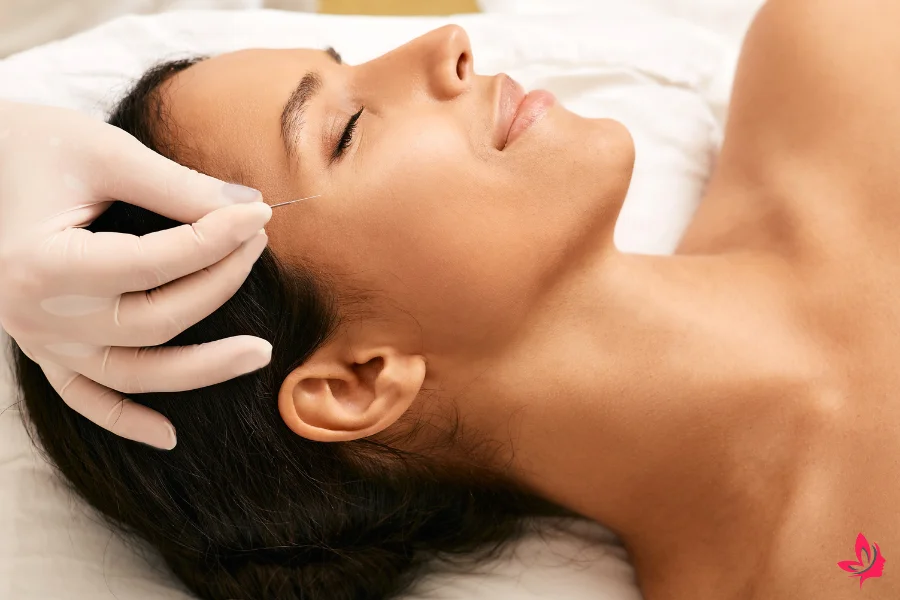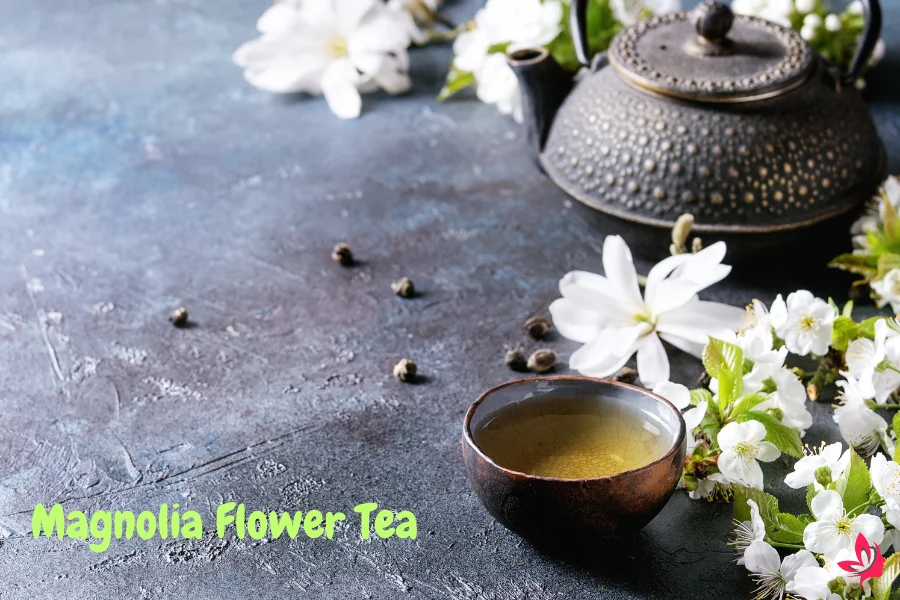Acupuncture for sinuses offers a natural method to address nasal congestion and related discomfort.
Many suffer from sinus congestion due to allergies or infections, and exploring alternative remedies can be helpful when traditional treatments fall short.
Acupuncture stimulates specific points in the body. These points may help clear blocked nasal passages and reduce sinus pressure.
Acupuncture for sinus congestion targets pressure points, and it is considered a safe and gentle approach for many. It is believed to assist with not only physical symptoms but also with promoting relaxation and overall well-being.
Those seeking a holistic remedy for sinus issues may find valuable insights into how this ancient practice can improve their symptoms.
Numerous studies support the benefits of acupuncture in treating sinus conditions. These studies indicate potential relief from sinus pressure, nasal congestion, and allergy-related symptoms.
People who have tried traditional methods without success may consider acupuncture as a complementary treatment option worth exploring.
How Acupuncture Alleviates Sinus Congestion

Acupuncture for sinuses employs thin needles to target specific points. This method can help clear nasal passages and relieve sinus congestion.
This method can benefit those dealing with chronic or acute sinusitis. It provides a holistic approach to managing sinus symptoms.
The Role of Acupuncture in Treating Nasal Passages
Acupuncture treatment involves inserting thin needles into the body at specific acupuncture points. These points are believed to affect the flow of qi or vital energy.
In sinus issues, these points are often related to regulating the nasal passages.
Stimulating these points may reduce nasal inflammation and open sinus pathways. This offers relief from congestion and other sinus symptoms, such as a runny nose or difficulty breathing.
This alternative medicine practice may also enhance the body’s immune response, helping to fend off sinus infections.
Specific Points for Sinus Relief in Traditional Chinese Medicine
Traditional Chinese Medicine (TCM) identifies particular acupuncture points on the body that can help alleviate sinus congestion. Some of these points are located on the face, such as near the bridge of the nose and above the eyebrows.
By targeting these points, practitioners aim to relieve sinus pressure and improve nasal drainage.
Combining acupuncture with other therapies, like herbal remedies and dietary changes, may boost treatment effectiveness.
This approach targets the root causes of sinus conditions. It can reduce chronic nasal congestion and improve the quality of life for those affected.
Chronic Sinusitis: How Acupuncture Provides Relief
Acupuncture can offer a noninvasive treatment option for individuals with chronic sinusitis. Sessions focus on reducing chronic inflammation and promoting sinus drainage.
Stimulating specific points might decrease sinus pain and facial headaches associated with chronic conditions.
Many believe that regular sessions can significantly improve daily life. These sessions are part of a comprehensive sinus management plan that includes acupuncture, dietary changes, and lifestyle modifications.
Traditional Chinese Medicine and Sinus Health

Traditional Chinese Medicine (TCM) offers various methods to help manage sinus health. These methods include acupuncture and herbal remedies to address sinus symptoms like congestion and pain.
Using Chinese Herbs to Complement Acupuncture Treatment
Chinese herbs are often used alongside acupuncture for sinuses to support overall treatment. Herbs like magnolia flower and angelica root can reduce nasal inflammation and sinus congestion, relieving symptoms during acute sinusitis episodes.
These herbs are chosen for their anti-inflammatory properties and potential to strengthen the immune system, contributing to sinus health maintenance.
When combined with acupuncture, herbal remedies can provide a holistic approach to treating sinus issues. This can potentially result in significant improvement in those struggling with chronic pain caused by sinus conditions.
The Flow of Qi: How It Affects Sinus Health
In TCM, Qi refers to the vital energy that flows throughout the body. Its proper flow is considered essential for maintaining health.
Blockages or imbalances in Qi can lead to sinus symptoms like facial pain, nasal congestion, or a runny nose.
Acupuncture focuses on specific points to restore the balance and flow of Qi, aiming to relieve sinus pressure.
By targeting these acupuncture points, practitioners seek to alleviate sinus symptoms. This allows patients to experience better sinus drainage and improved breathing.
Combining Acupuncture with Alternative Therapies for Sinus Issues
Acupuncture can be effectively paired with alternative therapies to enhance sinus relief.
For example, practices like nasal irrigation and devices like a neti pot can clear nasal passages.
Herbal steam inhalation is another method that may complement acupuncture sessions. It helps to open nasal cavities and ease breathing.
By integrating these therapies with TCM, individuals with sinus issues might find an effective treatment to improve their quality of life and reduce chronic nasal congestion.
Acupuncture Sessions: What to Expect

Acupuncture for sinuses is a treatment that can help relieve sinus congestion and improve sinus-related issues. These sessions generally target points to ease sinus pain and promote better nasal drainage.
First Session: What Happens During an Acupuncture Treatment
The first acupuncture session usually begins with a consultation. The acupuncturist assesses sinus symptoms, such as nasal congestion, sinus headaches, and facial pain.
Then, thin needles are gently inserted into predetermined points on the body. These points are thought to influence the flow of qi and improve sinus drainage.
During this time, the practitioner may focus on areas connected to the immune system to help combat sinus symptoms.
Treatment duration can vary, but sessions commonly last about 30 to 60 minutes.
Specific Acupuncture Points for Sinus Congestion
Acupuncture targets specific acupuncture points to alleviate sinus congestion and related symptoms.
Points such as Large Intestine 20, located near the base of the nose, can help open up nasal passages.
Other points include those near the bridge of the nose and above the eyebrows. These can relieve sinus pressure and promote sinus drainage.
Stimulating these points aims to address the root cause of sinus issues, offering an alternative to conventional treatments like nasal sprays.
The Effectiveness of Acupuncture for Sinus Pain and Pressure
The effectiveness of acupuncture for sinus pain and pressure can vary.
Some individuals report significant improvement in managing symptoms like a runny nose and sinus headaches.
Acupuncture may also improve the overall quality of life for those suffering from chronic sinusitis by reducing nasal inflammation.
While research is ongoing, acupuncture is considered a promising alternative treatment for sinus conditions. Compared to traditional remedies, it has minimal side effects, making it beneficial for managing sinus issues and improving sinus relief.
Addressing Common Sinus Problems with Acupuncture

Acupuncture for sinuses offers a holistic approach to managing sinus issues, addressing symptoms like sinus congestion, facial pain, and allergic rhinitis.
This alternative therapy can be an effective treatment for enhancing sinus drainage and reducing nasal inflammation, which can help improve the quality of life for those affected by these common conditions.
Treating Sinus Headaches and Facial Pain Naturally
Sinus headaches and facial pain are common symptoms that can significantly affect daily life.
Specific acupuncture points can offer pain relief by promoting blood flow and reducing tension in the sinus cavities.
The thin needles used during an acupuncture session target pressure points around the face. This can alleviate discomfort caused by sinus congestion.
This natural approach provides an alternative to conventional treatments like painkillers and nasal sprays. It offers a gentle method to ease sinus pressure and frontal headaches.
How Acupuncture Helps with Allergic Rhinitis and Hay Fever
Allergic rhinitis and hay fever are triggered by allergens like pollen, leading to symptoms such as a runny nose and sneezing.
Acupuncture treatment stimulates the immune response, helping to reduce allergic reactions and nasal symptoms.
By enhancing the flow of qi, acupuncture can relieve sinus congestion and improve nasal passages.
Traditional Chinese medicine often uses a combination of acupuncture and Chinese herbs to manage allergic symptoms and prevent their recurrence effectively.
Managing Chronic Nasal Congestion and Sinusitis Symptoms
Chronic nasal congestion and sinusitis symptoms, like difficulty breathing and a stuffy nose, can persist.
Acupuncture stimulates specific points to enhance sinus drainage and reduce nasal cavity inflammation.
This can significantly improve sinus conditions, especially when coupled with lifestyle changes and other holistic approaches.
The effectiveness of acupuncture in treating chronic pain and sinus symptoms highlights its value as an alternative to Western medicine. It offers longer-lasting relief without the side effects of some medications.
Enhancing Immune System and Quality of Life

Acupuncture for sinuses can help improve immune function and overall well-being. This practice targets specific points to relieve symptoms like sinus congestion and facial pain while promoting better sinus health.
How Acupuncture Boosts the Immune Response to Sinus Infections
Acupuncture treatment targets the body’s immune response, which can be vital for anyone suffering from sinus infections.
Specific acupuncture points may help stimulate the flow of qi, which is believed in traditional Chinese medicine to enhance the immune system’s ability to fight off sinus infections.
These treatments may alleviate common symptoms like nasal congestion and facial pain.
By focusing on immune health, acupuncture can potentially reduce long-term issues associated with chronic sinusitis.
Lifestyle Changes and Acupuncture for Better Sinus Health
Incorporating lifestyle changes alongside acupuncture sessions can significantly improve sinus health.
Simple changes such as regular nasal irrigation or steam inhalation can complement acupuncture’s benefits.
Additionally, reducing exposure to allergens that cause nasal inflammation and sinus congestion can make a difference.
When combined with acupuncture, these lifestyle adjustments can help relieve sinus pain and improve daily life for those with sinus issues.
Holistic Approach: Combining Acupuncture with Western Medicine
Combining acupuncture with Western medicine offers a holistic approach to treating sinus problems.
While conventional treatments, like nasal sprays and antihistamines, focus on relieving symptoms, acupuncture provides an alternative therapy that can address underlying imbalances.
This dual approach can benefit those struggling with chronic nasal congestion, often leading to better outcomes.
Physicians may recommend acupuncture as part of a comprehensive care plan. This blends traditional methods with acupuncture for a more rounded treatment strategy for sinus conditions.
Final Thoughts
Acupuncture for sinuses provides a natural approach to easing congestion. By targeting specific points in the body, it can help relieve symptoms like blocked nasal passages.
This ancient practice remains a popular complementary treatment, showing promise for individuals experiencing sinus and allergy issues.
Some people turn to acupuncture because it doesn’t involve medication. This makes it an attractive option for those who prefer holistic health practices.
It can be combined with other treatments like acupressure for enhanced relief.
Key Takeaways:
- Acupuncture targets point on the body to alleviate sinus congestion.
- It is a natural method that can complement other treatments.
- May reduce dependency on medications and their side effects.
Consulting with a licensed acupuncturist can offer personalized insights for those interested in exploring this topic more.
Frequently Asked Questions
Acupuncture for sinuses offers a natural approach to treating congestion and other sinus-related issues. This therapy involves specific techniques that may help clear nasal passages and alleviate symptoms.
Does acupuncture for sinuses work?
Acupuncture may help alleviate sinus congestion by easing inflammation and enhancing nasal drainage. It targets specific points on the body to stimulate the sinuses and clear blocked passages, relieving individuals with allergies or infections.
What acupuncture point clears sinuses?
LI20, located near the nostrils, is a known acupuncture point for clearing sinuses. Stimulating this point can help open up nasal passages, relieving congestion.
How long does acupressure take to work on the sinus?
Acupressure may provide relief within minutes to an hour, depending on the individual and the severity of congestion. Regular sessions could lead to more sustained improvement.
What is the fastest way to cure sinusitis?
Visiting a healthcare professional to address sinusitis is essential for fast relief. Acupuncture may complement conventional treatments by reducing inflammation and improving drainage, although outcomes vary.
How do you completely heal sinuses?
Complete healing often requires a combination of medical treatments and home remedies. In addition to acupuncture, staying hydrated and using saline rinses can help maintain clear sinuses.
What is the Chinese remedy for sinus pressure?
In Traditional Chinese Medicine, herbs and acupuncture are commonly used to relieve sinus pressure. Herbal remedies may be personalized, aiming to treat underlying imbalances.
How do chiropractors clear sinuses?
Chiropractors may use specific adjustments and massage techniques to improve sinus drainage, addressing misalignments that affect sinus health.
Can acupuncture help with mucus?
Acupuncture might help reduce excess mucus production by targeting related acupuncture points. This can help open up nasal passages and improve airflow.
Where to rub to relieve sinus pressure?
Rubbing the area between the eyebrows and either side of the nose can help relieve sinus pressure. Applying gentle pressure to these areas may alleviate discomfort.
Is acupuncture good for allergies?
Acupuncture is believed to help with allergy symptoms. It does this by reducing nasal inflammation and improving airflow.




